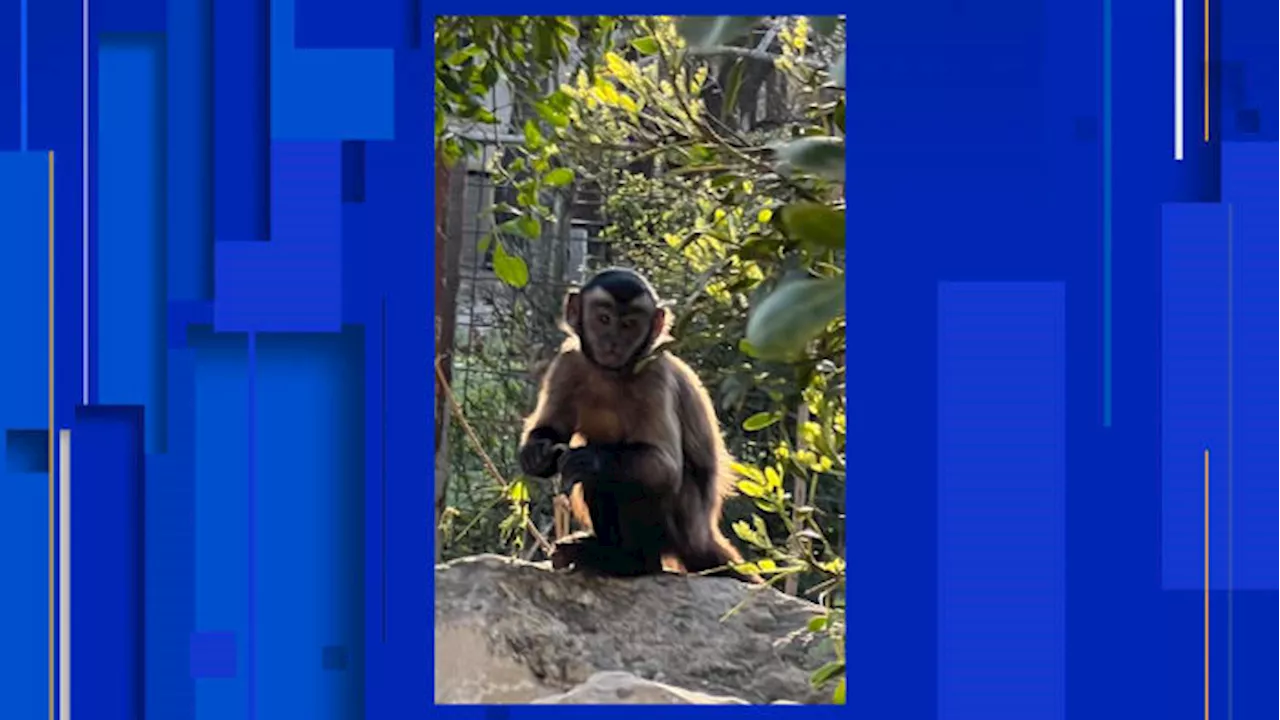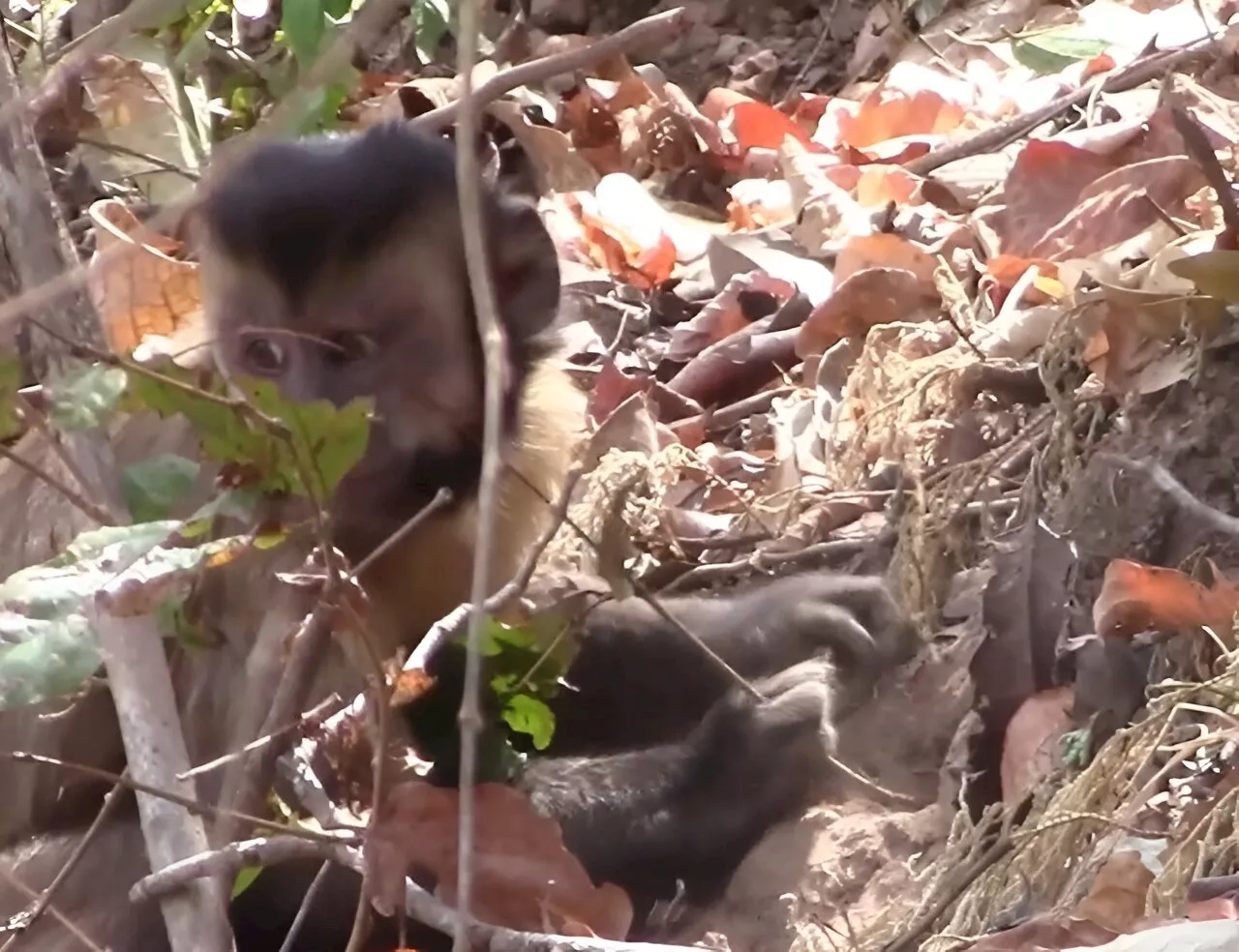Capuchin monkeys are omnivores whose diet in the wild may include buds, flowers, leaves, seeds, nuts, fruit, and berries; as well as birds, eggs, small mammals, mollusks and arthropods such as insects and spiders.
Study shows that capuchin monkeys use sticks and stones to dig for food underground retrieved 14 May 2024 from https://phys.org/news/2024-05-capuchin-monkeys-stones-food-underground.html
This document is subject to copyright. Apart from any fair dealing for the purpose of private study or research, no part may be reproduced without the written permission. The content is provided for information purposes only.Jun 25, 2019Use this form if you have come across a typo, inaccuracy or would like to send an edit request for the content on this page. For general inquiries, please use ourThank you for taking time to provide your feedback to the editors.
Your feedback is important to us. However, we do not guarantee individual replies due to the high volume of messages.to let the recipient know who sent the email. Neither your address nor the recipient's address will be used for any other purpose. The information you enter will appear in your e-mail message and is not retained by Phys.org in any form.Get weekly and/or daily updates delivered to your inbox.
Physics News Science News Technology News Physics Materials Nanotech Technology Science
Canada Latest News, Canada Headlines
Similar News:You can also read news stories similar to this one that we have collected from other news sources.
 New study calls into question prior study results that found tumor transmission slowing in Tasmanian devilsA trio of biologists and veterinarians with CRG Barcelona, the University of Cambridge and The Barcelona Institute of Science and Technology, respectively, has found evidence contradicting results found by a prior team of researchers who claimed that they had found that tumor transmission in Tasmanian devils was slowing.
New study calls into question prior study results that found tumor transmission slowing in Tasmanian devilsA trio of biologists and veterinarians with CRG Barcelona, the University of Cambridge and The Barcelona Institute of Science and Technology, respectively, has found evidence contradicting results found by a prior team of researchers who claimed that they had found that tumor transmission in Tasmanian devils was slowing.
Read more »
 Boerne family organizing search party for missing pet monkeyCupcake, a Capuchin monkey, disappeared from her family's home in Kendall County April 25.
Boerne family organizing search party for missing pet monkeyCupcake, a Capuchin monkey, disappeared from her family's home in Kendall County April 25.
Read more »
 Same-Sex Weddings Haven't Harmed Straight Marriage, Study Shows'Overall, the fears of opponents of same-sex marriage simply have not come to pass,' researcher Benjamin R. Karney said.
Same-Sex Weddings Haven't Harmed Straight Marriage, Study Shows'Overall, the fears of opponents of same-sex marriage simply have not come to pass,' researcher Benjamin R. Karney said.
Read more »
 Study shows natural shorelines support greater biodiversity in the Chicago riverNew research published today sheds light on the positive effects of maintaining natural shoreline structure on freshwater ecosystems, as opposed to armoring them with steel walls or piles of rocks. The work is published in the journal Aquatic Conservation: Marine and Freshwater Ecosystems.
Study shows natural shorelines support greater biodiversity in the Chicago riverNew research published today sheds light on the positive effects of maintaining natural shoreline structure on freshwater ecosystems, as opposed to armoring them with steel walls or piles of rocks. The work is published in the journal Aquatic Conservation: Marine and Freshwater Ecosystems.
Read more »
 Study shows cops at high risk of misconduct also at elevated risk for off-duty troubleResearchers found that 1% of officers deemed the highest risk were 6.7 times more likely to receive complaints about on-duty misconduct and 6.2 times more likely to receive complaints off the job.
Study shows cops at high risk of misconduct also at elevated risk for off-duty troubleResearchers found that 1% of officers deemed the highest risk were 6.7 times more likely to receive complaints about on-duty misconduct and 6.2 times more likely to receive complaints off the job.
Read more »
 Algorithms help people see and correct their biases, study showsAlgorithms are a staple of modern life. People rely on algorithmic recommendations to wade through deep catalogs and find the best movies, routes, information, products, people and investments.
Algorithms help people see and correct their biases, study showsAlgorithms are a staple of modern life. People rely on algorithmic recommendations to wade through deep catalogs and find the best movies, routes, information, products, people and investments.
Read more »
